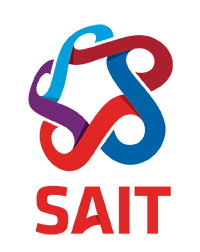What is Content Management
- Content management in web spaces is how website data and assets are stored, edited, and organized
- Content is organized in a database or schema
Activity: Website Review
- Look at some websites that you like, try to find content patterns.
Demonstration Activity
- Visually Recreate a page's content structures using figjam
What is a CMS?
CMS's are used to organze content on websites. This includes text content like blogs and articles, images, videos, products, etc.
Traditional CMS's like Wordpress and Drupal are built on a LAMP stack. These types of sites still make up over 40% of websites on the internet.
However new types of CMS's are starting to emerge as well. The JAMStack has recently become a serious contender due to it's flexibility, developer friendliness, optimization, and security.
Headless CMS vs Traditional CMS
-
Headless CMS : The Content is separated from the frontend.
-
There are many headless cms options.
- Storyblok
- Visual Editor, stable, great features, SAAS, some price wall limits, vue based
- Sanity.io
- Great range of free features, react built customizable ui, code to set up widgets
- Strapi CMS
- Very full featured, sql database default, deployed separately from frontend, most popular open source headless cms
- Ghost CMS
- Beautiful editor, 14 day free trial
- Storyblok
-
Traditional CMS
- Backend and frontend content are built together
- Often uses a LAMP stack
- Linux: Operating System
- Apache: HTTP Server
- MySQL: Relational Database
- PHP/Perl/Python: Programming Language
- Though other stacks such as WAMP or MAMP are also used.
-
Examples includes:
Why Headless?
-
We will be using a headless CMS because it is more flexible, secure, and developer friendly than traditional cms options.
-
JAMstack allows for content editors and developers to be able to use tools that work best with their workflow.
-
Headless CMS allows deployment of content to multiple frontends, this is more challenging with a traditional CMS
JAMstack Overview
- Javascript: Language
- API: Content Delivery
- Markup: Content
Important Characteristics
- Scalable: Easier to scale by decoupling cms and frontend
- Fast Performance: Prebuilt static site
- More Secure: No Server Vulnerabilities
- Developer Experience: Designed to give dev and content editors best working environments
Jamstack workflow
Activity
- Research different headless cms'
